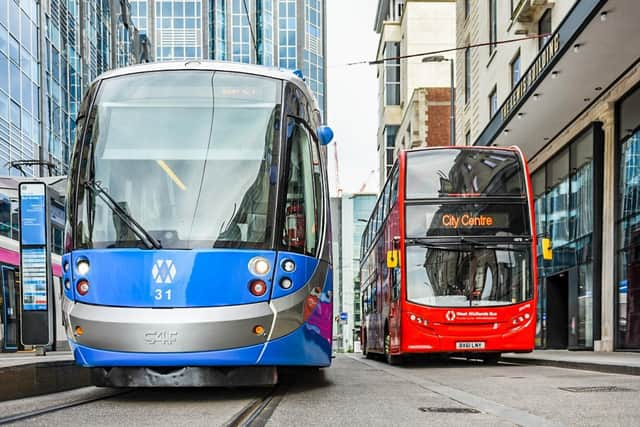£1.3bn boost for West Midlands transport infrastructure
This article contains affiliate links. We may earn a small commission on items purchased through this article, but that does not affect our editorial judgement.
and live on Freeview channel 276
Ten electric vehicle charging stations and other projects are set to go ahead with the biggest ever investment in transport infrastructure in the region
The Department for Transport (DfT) has confirmed a £1.05 billion grant to transform road, bus, rail, tram, cycling and walking infrastructure across to the West Midlands.
Advertisement
Hide AdAdvertisement
Hide AdWest Midlands Combined Authority is topping this City Region Sustainable Transport Settlement (CRSTS) money, with local funding to oversee delivery of £1.3 billion investment over the next five years.
WMCA leaders have drawn up a priority list of schemes which they have selected to drive the decarbonisation of transport, target investment into areas of poor connectivity and support inclusive economic growth.
The programme is being developed by Transport for West Midlands (TfWM), which is part of the WMCA, in partnership with local councils.
Last month the WMCA Board gave the green light to the first four projects for the funding.


What are the first four transport infrastructure projects to be invested in?
- £24 million to plan and deliver a network of 10 electric vehicle charging stations with at least 100 charging points across the West Midlands, including acquiring land. Some of the money will be used to buy the land required for these, more details here
- £43 million to extend the West Midlands Metro depot at Wednesbury to service the region’s growing tram fleet and network – including the extension to Dudley in 2024.
- £17 million to replace and upgrade the Metro power supply on the existing Wolverhampton to Birmingham line for the first time since it opened 22 years ago.
- £56 million to deliver phase two of the Sprint bus priority corridor with more bus lanes and junction upgrades along the full route between Solihull and Walsall. Phase one along the A34 and A45 in Birmingham is nearing completion.
Advertisement
Hide AdAdvertisement
Hide AdThe grant includes funding for the development of new bus lanes and priority routes. Around £254 million will go directly towards schemes which enable active travel, the collective name for cycling and walking.
The DfT also confirmed that it has earmarked additional funding of up to £87.9 million towards the further development of the region’s Bus Service Improvement Plan (BSIP).


What has TfWM said about the £1.3bn investment?
Anne Shaw, executive director of TfWM, said: “This is the largest single investment in our transport infrastructure and will deliver a wide range of projects across our region including bus priority routes, railway stations, safe cycle routes and electric vehicle charging facilities.
“We have, with our local authority partners and backed by the Government, developed an investment programme which will support our targets of delivering a green transport revolution, to better connect our communities and support new jobs and housing.”
A message from the editor:
Advertisement
Hide AdAdvertisement
Hide AdThank you for reading. BirminghamWorld is Birmingham’s latest news website, championing everything that is great about our city - reporting on news, lifestyle and sport. We want to start a community among our readers, so please follow us on Facebook,Twitter and Instagram, and keep the conversation going.
Comment Guidelines
National World encourages reader discussion on our stories. User feedback, insights and back-and-forth exchanges add a rich layer of context to reporting. Please review our Community Guidelines before commenting.
